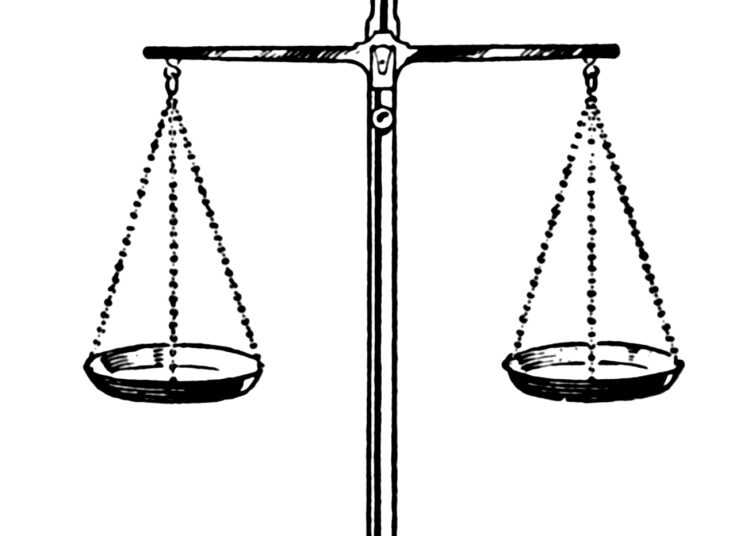By Sami Zaptia.
Tripoli, 10 June 2014:
Yesterday, the 9th June, could go down as yet another historic day in the building of the . . .[restrict]new democratic Libya. The Constitutional Circuit of the Supreme Court ruled yesterday that the GNC election of Prime Minister Ahmed Maetig on 4 May was unconstitutional.
The 17th February, the key date in democratic Libya, was the birth of the so called “new Libya”. It heralded a democracy and a Qaddafi-free Libya after 42 years of dictatorship that followed the 1st September 1969 coup against King Idris I.
Recent key dates in Libya’s democracy include the formation of the National Transitional Council (NTC) headed by Mustafa Abduljalil in February 2011. In August 2011 the Transitional Constitutional Declaration was announced by the NTC which acts as the social contract with the Libyan people and the political roadmap that is still being implemented today. In October 2011 Mahmoud Jibril the de facto Prime Minister under the NTC peacefully handed over power to Abdulrahim Al-Kib.
In July 2012, Libya held its first historic democratic elections for the General National Congress (GNC) and the unelected Mustafa Abdul Jalil and his NTC peacefully handed over to the newly elected GNC.
The GNC initially elects Mustafa Abushagour as Prime Minister in September, but he fails to present an acceptable cabinet to the GNC and subsequently Ali Zeidan is sworn-in as Prime Minister in November 2011. In March 2014, Ali Zeidan is dismissed in a vote of no confidence by the GNC and Abdullah Thinni is appointed caretaker Prime Minister until today.
All these political developments in Libya’s brief democracy took part democratically. The process was not perfect, with a back ground of militias exerting personal coercion on the various political players, including the actual brief kidnapping of Prime Minister Ali Zeidan in October 2013.
Whilst yesterday’s court ruling was important, how the conflicting parties reacted to it was of equal importance. History will not forget that potential Prime Minister Ahmed Maetig chose to see the bigger picture and gracefully accept the decision of the court. Libyans owe him a gracious thank you.
A thank you must also be given to (at least half of) the GNC for accepting the court’s decision. After all, if the GNC did not accept the court’s decision there was a real possibility that the country could have descended into a civil war.
If the GNC did not accept the court’s decision it would have probably also ended what little respect and legitimacy it had left between now and the elections for their replacement the House of Representatives on 25 June. It would have made it impossible for it to carry out even the most routine operations up to then, including passing an interim emergency monthly budget or even the full 2014 budget.
For most Libyans the court ruling and its cross political divide and widespread acceptance proved that at least the courts are still independent and despite possible – I stress possible – fears of threats or coercion from militias or certain cities and political streams – the court made its decision.
On the face of it, the vote to appoint Maetig back in May looked suspect watching it live on TV. It was clear while the cameras were on that Maetig only succeeded in obtaining 113 votes – 7 short of the 120 that he needed. As the First Deputy head of the GNC Ezzidine Awami closed the session, he was confronted by numerous GNC members, and as they became loud and ruckus, the live TV transmission was cut. This in itself was not a good sign in a supposedly democratic and transparent society.
We later learned that, off air, the Second Deputy GNC head, Salah Makhzoum, then reopened the session as or after Maetig supporters allegedly gathered further supporters from the corridors of the GNC building or their homes to obtain the 121 votes needed to appoint him as Prime Minister.
To reinforce this, GNC head Nurri Abusahmain returned from a self-imposed “holiday” following the airing of a videotaped meeting of him with females unaccompanied in a room. Abusahmain’s sudden return from self imposed political exile and his added stamp of approval on Maetig’s election in such circumstances only added to the political discord.
Division and separation of powers – checks and balances
What yesterday’s decision also teaches us is that the GNC is not the supreme power in Libya. The GNC clearly thought that it is. And there is a strong and persistent school of thought that it is. Analysts have been debating if the court’s decision says that the GNC is illegitimate or that it simply did not follow its own rules in electing Maetig as Prime Minister. The majority accept that the court did not make a decision on the issue if the GNC’s term and legitimacy and constitutionality ended on 7 February – as its opponents claim.
But what yesterday’s court ruling does tell us is that the GNC while it may be the supreme political body in Libya, it has to observe the divisions of powers between itself, as the legislature, the government, as its the executive arm, and the courts and justice system as an independent judiciary. It is this division and balance of power that provides checks and balances in a democracy to prevent any one arm of the state from dominating affairs or even becoming dictatorial.
The Second Deputy GNC head Salah Makhzoum in a press conference yesterday after the court announced its ruling, accepted the court’s decision and the implied separation of powers saying that the GNC is the legislature empowered with overseeing the executive.
Supremacy of the principle of the rule of law
Yesterday’s court pronouncement on the GNC election of Maetig also hopefully begins to establish and enshrine and entrench the principle of the unquestionable supremacy of the principle of the rule of law as the bedrock of Libya’s newly founded and nascent democracy.
Whilst a democratically elected GNC is supreme politically, it must abide by its own rules because in a democracy, unlike in the days of the Qaddafi dictatorship, society is run by rules regulations and laws – not by personal whims and decisions. The GNC must in all its dealings and affairs act transparently and democratically.
Again, yesterday, in a press conference, the Second Deputy GNC head Salah Makhzoum accepted the court’s decision saying that this decision and his and the GNC ‘s acceptance of it “entrenches the principle of the rule of law and institutions”.
Democracy is not easy and it has many demands, of which elections and separation of powers and the rule of law are but some of its requirements.
A vibrant and viable democracy also needs to fight corruption, to seek transparency and be transparent, to have a functioning judiciary in the form of the Public Prosecution and police as its agent of arrest and investigation. Transparency needs free speech, free press and media. This freedom of information and the press and transparency also includes the live transmission of all GNC and House of Representatives sessions, irrespective of how rowdy, embarrassing or poor in quality these sessions may be.
The GNC has regularly chosen to prevent the live broadcasting of its sessions, citing security and the coercion by militias as the reason. Transparency and accountability are not a choice and an option in a democracy – they are a duty and a prerequisite of and for democracy and liberty.
The more important message and signal of yesterday’s court ruling, was that if our lawmakers, the GNC, did not abide by the rule of law, what hope of the general public and more importantly the militias abiding by the rule of law? The GNC must now send the message to all militias that Libya and Libyans want to move on from the state of revolution to the state of rule of law and institutions.
That surely was the main message of yesterday’s court ruling and its acceptance by the GNC and Ahmed Maetig.
The next vital sign post in Libya’s democracy is the successful elections of the House of Representatives on 25 June. A successful election on 25 June would mean that Libya would have had two successful general elections from the summer of 2012 to the summer of 2014. The ability to regularly and successfully execute general elections is a good culture for Libyans to learn and practice.
The next aim, in fact duty, for the average Libyan electorate between now and 25 June is to study the list of their local candidates closely. Libyans need to improve their electoral performance. They need to read, research and learn more about the candidates they vote for. With democracy, elections and voting – comes responsibility.
Libyans must take full responsibility for the candidates they vote for. They will only elect candidates and a House of Representatives that they deserve and choose. Bad choices will result in another poor parliament. Good choices will hopefully return good, responsible candidates and a good House of Representatives.
A good House of Representatives is what Libya desperately needs during this critical transitional period. A good House of Representatives will hopefully give birth to a good government that will deliver the needs of the Libyan people.
Yesterday’s court ruling establishing the supremacy of the principle of rule of law in a democracy is yet another foundation stone in the building of Libya’s long road to democracy. The building process must continue. Roll on 25 June elections. [/restrict]





